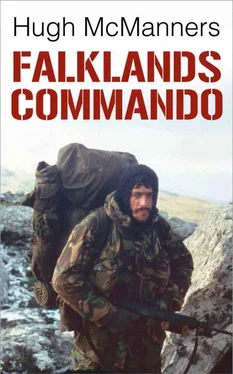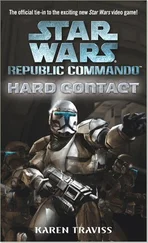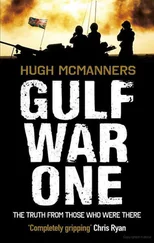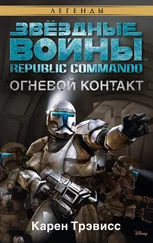Hugh McManners - Falklands Commando
Здесь есть возможность читать онлайн «Hugh McManners - Falklands Commando» весь текст электронной книги совершенно бесплатно (целиком полную версию без сокращений). В некоторых случаях можно слушать аудио, скачать через торрент в формате fb2 и присутствует краткое содержание. Город: London, Год выпуска: 2014, ISBN: 2014, Издательство: Nightstrike Publishing, Жанр: nonf_military, Биографии и Мемуары, на английском языке. Описание произведения, (предисловие) а так же отзывы посетителей доступны на портале библиотеки ЛибКат.
- Название:Falklands Commando
- Автор:
- Издательство:Nightstrike Publishing
- Жанр:
- Год:2014
- Город:London
- ISBN:978-0-992-81540-0
- Рейтинг книги:4 / 5. Голосов: 1
-
Избранное:Добавить в избранное
- Отзывы:
-
Ваша оценка:
- 80
- 1
- 2
- 3
- 4
- 5
Falklands Commando: краткое содержание, описание и аннотация
Предлагаем к чтению аннотацию, описание, краткое содержание или предисловие (зависит от того, что написал сам автор книги «Falklands Commando»). Если вы не нашли необходимую информацию о книге — напишите в комментариях, мы постараемся отыскать её.
Falklands Commando — читать онлайн бесплатно полную книгу (весь текст) целиком
Ниже представлен текст книги, разбитый по страницам. Система сохранения места последней прочитанной страницы, позволяет с удобством читать онлайн бесплатно книгу «Falklands Commando», без необходимости каждый раз заново искать на чём Вы остановились. Поставьте закладку, и сможете в любой момент перейти на страницу, на которой закончили чтение.
Интервал:
Закладка:
The fifth member of FO1 was also the youngest, Gunner Tim Bedford. Like Steve and Des, he’d just completed the technical course at the end of the 148 Battery selection. He’d also come to 148 Battery from Basic Training, having been in the Forces for less than two years. Tim was inclined to be the quietest of the five of us, tall, gangly, straight-backed and serious-looking. Initially he, more than the other two, was worried about his lack of expertise. As time went on his self-confidence increased and he was more forthcoming.
Faced with putting a new team together at such a time, the overall lack of expertise was rather a worry for us all – but it did actually turn out to be a good thing. We used the weeks we were to spend on board ship going through everything we knew, talking about it and practising. There were also stacks of chat, wit and repartee, which in my view is the best sign of all. They were great fun to be with.
The chaotic week of preparation was tiring. We worked away on the phones in the battery offices, were summoned for briefings at strange times and went into Poole for final boozy dinners and hilarity in wine bars. We were summoned from our beds in the early hours of the morning to check equipment that had just arrived, so that when I finally received the word to pack our gear onto a four-ton truck and prepare to go, it was a relief.
More military confusion ensued. Initially we were told to drive 543 miles north to Arbroath, near Dundee in Scotland, to join 45 Commando. Then 45 Commando were told their ship had to sail to Marchwood near Southampton in Hampshire to load up some vehicles, so we decided to wait. Finally 45 Commando were told to load everything into trucks, drive the 543 miles south to Marchwood to be reunited with their own vehicles which had already sailed, then load into another Royal Fleet Auxiliary ship (RFA) at the military port. Waiting saved us a 510-mile drive (it being 33 miles from Poole to Southampton…)
So on the morning of 4 April, with a four-ton truck full of kit, and ourselves in a Land Rover, we drove those 33 miles, to Marchwood Military Port, to load into the Royal Fleet Auxiliary Sir Percivale . We had five full sets of arctic gear, for South Georgia and in case the Falklands operation lasted into the winter. We had two inflatable rubber boats (Geminis) and four outboard motors with spares to match. In large, wicker-work hampers, carefully padded, were our radio sets, one for each of us and several spares, with two hand ‘wankers’ (heavy hand generators to charge up the batteries) and spare batteries. Bayonets had been issued, more as a declaration of intent as they fitted only one of the two sorts of rifles that we used. We took the 7.62-mm Self Loading Rifle (the SLR) and 9-mm Browning automatic pistols. However we found the lighter 5.56mm Armalite a better weapon for our purposes and so swapped, with the Brownings as concealed weapons ‘of last resort’.
We were ready to parachute if required, with ’chutes, the special fuel bags needed when parachuting with a Gemini boat and outboard motors, para helmets, CSPEP’s (carrying straps personal equipment parachutist), heavy duty zip-up waterproof bags, and so on. There was talk of us being parachuted on to gunships that had already sailed, in order to save time and get us there quickly.
I collected a pile of stationery from our Chief Clerk: notebooks, plastic film to waterproof the maps, sellotape, pens, pencils, A4 lined paper, exercise books, rulers, scissors and anything else I could purloin from his store.
Later, after a few days boredom at sea, I was stricken with regret at not bringing my guitar from Cornwall. It hadn’t somehow seemed ‘proper’ to take it to war, plus it risked being lost in the chaos once we went into action. I’d left it there as a sort of talisman to ensure my return. But I should have brought it along. You need all the frivolity you can conjure up when life gets too serious.
We took the wrong exit off a roundabout, and as we made an ambitious U-turn across a traffic island, civilian drivers pulled over out of our way, giving us the thumbs up and waving through their wind screens. We stopped off en route at Des Nixon’s house, in a compound of Army houses – he enacting the same scene of goodbyes that occurred every time a team went away. On this occasion we had no idea how long we might be gone or what we might have to do. We hoped the diplomats would sort it out next week. The worried wives were cheerful, with puzzled children who’d seen Dad going off like this many times before, but realising this time was different.
Sir Percivale was moored at Marchwood Military Port with her stern ramp lowered. A progression of forklift trucks shifted pallets from the quayside, down an incline onto a floating pontoon and across the lowered ramp into the ship’s hold. The bow also had a ramp so that vehicles could run right through the ship and into a succession of further ships linked together like a chain of very large caves. Three gangplanks were in use, and two cranes were using large nets to lift in stores, plus using special chain harnesses to load Land Rovers, trailers and 105-mm Light Guns. The other side of the narrow jetty was similarly occupied with the loading of sister ship RFA Sir Lancelot.
The dock was lined with waiting Land Rovers, their trailers bulging with camouflage nets and wooden poles, up-ended Bergen rucksacks, wickerwork radio hampers, black plastic jerrycans and petrol cans, all emptied and vented according to regulations ready for the voyage. Much of this equipment had come straight from Norway without having been unpacked. Troops, in camouflage windproof smocks, dark green ‘OG’ trousers (Olive Green) and boots, wearing their webbing equipment and carrying rifles or submachine guns, lounged against the vehicles and chatted. Some were sitting in cabs, others rooted about in the backs of trailers checking that nothing had been forgotten, and as soldiers always do, rearranging their kit.
The RCT dockers (Royal Corps of Transport) wearing white construction helmets, loaded the ships, as we waited until their loading schedule worked its way down to reach us. There was no rush or impatience. We’d been told we’d be on board for three months at least. Waiting was to be the name of the game.
In due course, when our time came, we went quietly up the gang plank. I noticed a name on a cabin door that I recognised, so I plonked my stuff on one of the spare bunks in that cabin, staking my claim with a pile of kit.
We whiled away the afternoon with a chaotic lunch in the main cookhouse ashore where cooks, overwhelmed with the extra numbers, had their larder stripped bare as if by locusts. Knowing we faced hours of waiting, I wandered away from the dock, up through the camp which I knew well from doing diving courses here, to its picturesque officer’s mess to read the newspapers.
Loading continued until 4:30 pm. Tea and ‘stickies’ (buns) were served on board Sir Percivale , but after ransacking the RCT cookhouse, no one was hungry. I made the last few phone calls from the call box on the quay, the gangplanks were drawn up and the deck parties coiled ropes and prepared to sail. The loyal (and shapely) wife of one of 45 Commando’s helicopter pilots had driven all the way down from Scotland (he having flown in his Gazelle) to see him off, waving from the quay in bright red jeans.
There’d also been farewells on board Sir Percival , as the wives of RFA officers took their leave. Some had been living on board in their husband’s palatial double cabins, cruising with the ship as a ‘perk’. Operation Corporate entailed a rude curtailment of this nautical idyll, their sudden eviction on the eve of the ship’s previously scheduled sailing for the delights of Rotterdam, adding to the general confusion.
Читать дальшеИнтервал:
Закладка:
Похожие книги на «Falklands Commando»
Представляем Вашему вниманию похожие книги на «Falklands Commando» списком для выбора. Мы отобрали схожую по названию и смыслу литературу в надежде предоставить читателям больше вариантов отыскать новые, интересные, ещё непрочитанные произведения.
Обсуждение, отзывы о книге «Falklands Commando» и просто собственные мнения читателей. Оставьте ваши комментарии, напишите, что Вы думаете о произведении, его смысле или главных героях. Укажите что конкретно понравилось, а что нет, и почему Вы так считаете.












